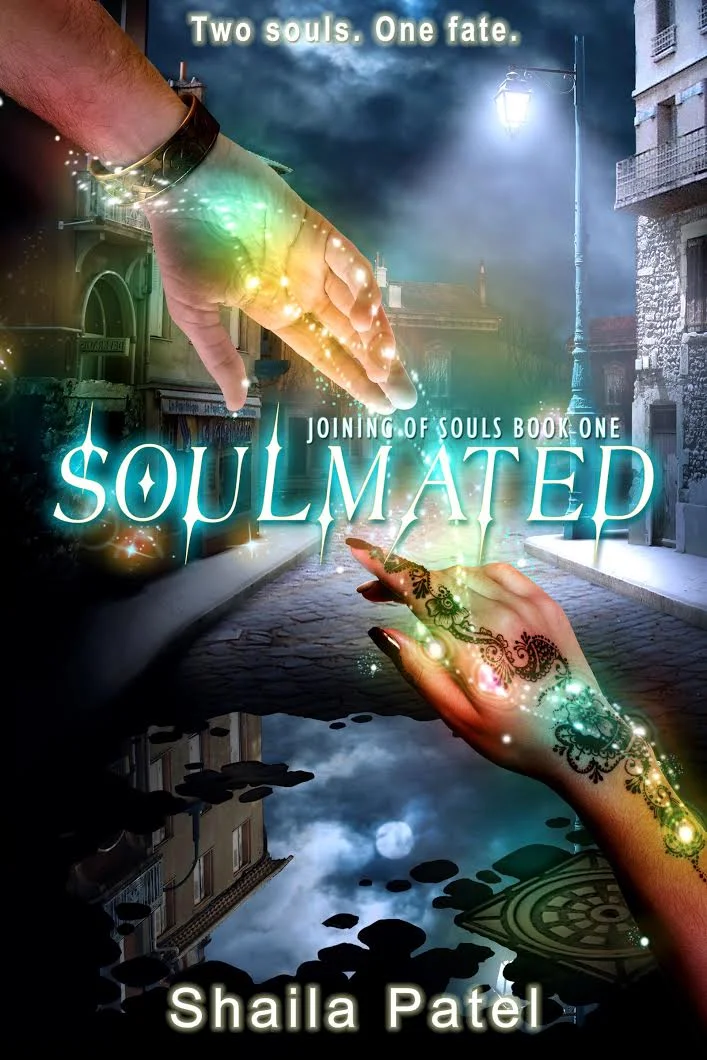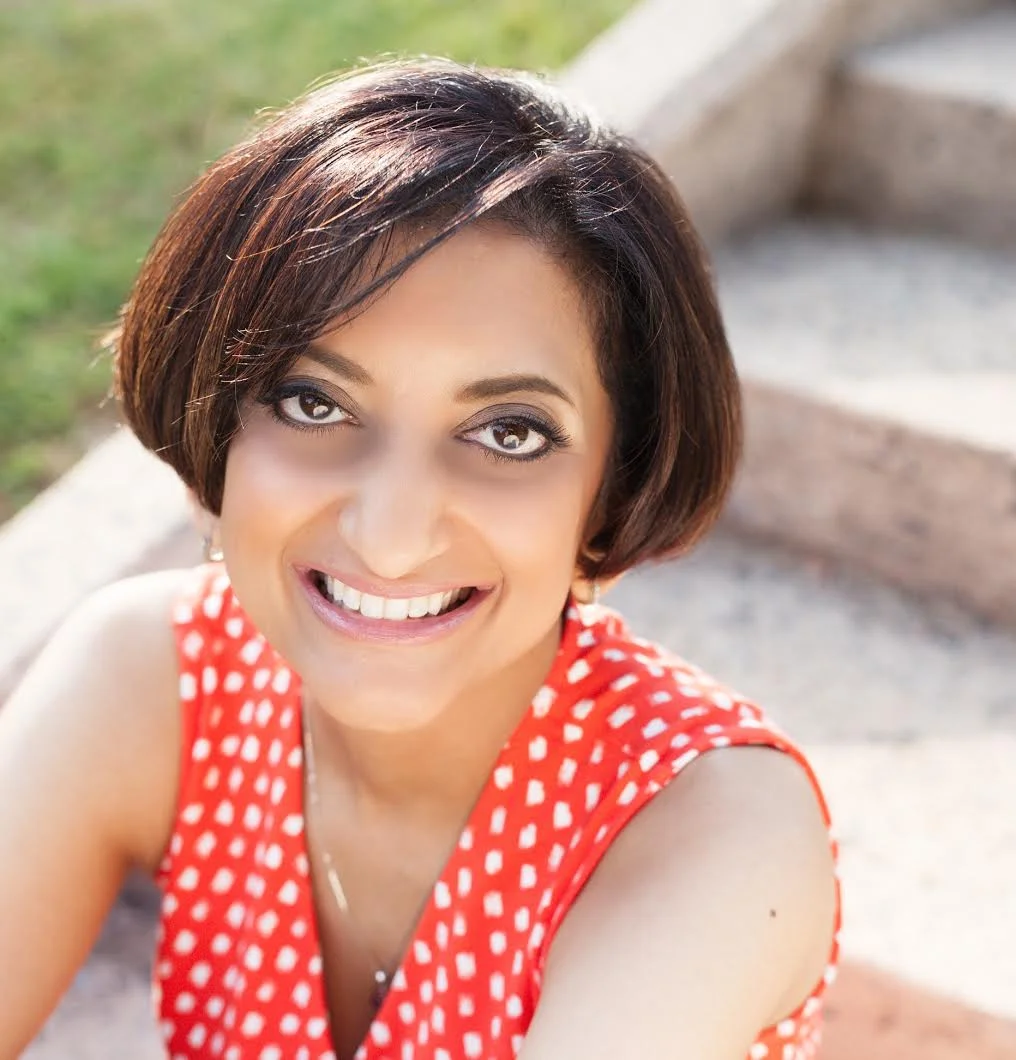A self-confessed lover of all things happily ever after, author Shaila Patel is a member of the Romance Writers of America, a pharmacist by training, a medical office manager by day, and a writer by night. Soulmated is her debut novel and the winner of the 2015 Chanticleer Book Reviews Paranormal Awards for Young Adult.
Please give us a brief overview of yourself and your work.
I'm a first generation Indian-American who never once imagined seeing a character like me in a novel while growing up. Perhaps it was a classic case of not knowing to wish for something you never dreamed was a possibility. I hadn't set out to write my debut novel Soulmated with the intention of introducing a diverse character to the world, but it felt odd not to have a protagonist who looked like me in my first book.
Soulmated is a teen paranormal romance about an Irish empath prince, Liam Whelan, who is forced by his parents to search for his empath soul mate. The rare union will solidify his family's power and political standing, but when he finds Indian-American Laxshmi, a non-empath, he has to decide just what he'll sacrifice to be with her, while she has to decide if he's worth going against her own parental and cultural expectations. Liam and Laxshmi tell their story in alternating points of view. Soulmated is the first in a series of four novels that will take the main characters from America to Ireland and then to India.
What made you want to be a writer? How did you begin writing?
I wrote a pirate-treasure adventure in fourth grade, and it was one of those assignments I've always looked back at fondly. I never connected the ease and excitement with which I wrote that first story to a possible career until twelfth grade. It was during my AP Literature class when I realized how much I loved reading and writing, but to my traditional immigrant parents, writing wasn't a lucrative enough career. I became a pharmacist instead and wrote on the side, finally hitting my stride when I dropped literary fiction and pursued romance. As an optimistic lover of all things happily-ever-after, it was a natural fit.
What inspires you to write?
The love of words and how descriptive they can be. I’m one of those who highlights beautiful sentences in books or rewinds an audiobook to hear just how melodic a certain set of words sound.
Is there any particular incident that has happened along your writing journey that you’d like to share?
I pitched my first draft of Soulmated to an editing contest and won two back-to-back developmental edits. That first draft was awful—so overwritten and aimless. I'm sure the editors wanted to beat themselves over the head for picking me as the winner! I learned a great deal though, and with that push, I submitted my manuscript and got a publishing contract on my second try. It still needed a lot of work (not because they were bad editors, mind you!), but their help showed me that it was a journey, not a race.
Do you have any advice for aspiring authors?
The best advice I can give is two-fold. One is that you have to treat your writing like it's a business because it will be. That means invest in yourself, be professional within the industry, and network, network, network! And second, never compare yourself to other writers. Sure, you can learn from them and be encouraged by them, but judging yourself against their successes is self-defeating. Even judging yourself against their failures can be a false encouragement. Use your own goals or business plan as the yardstick and learn to adjust to setbacks—because life won't stop throwing them your way.
Any advice for approaching publishers?
Think of publishers as people and imagine them doing what you do every day. If you're a mechanic, imagine listening to the same vague complaint every hour: "My car is making a funny noise. Can you be more specific? Uh, no." Or imagine being a teacher and hearing the same "I don't have my homework" excuse day after day. Or a barefoot mom who steps on a Lego when she's rushing to get the door because her kids don't heed her warnings to clean up.
My point is, don't be the person with the vague car problem. Know what it is you're presenting. Don't be the one with all the excuses. Be prepared when you deal with a publisher. And don't irritate them by not following their guidelines. In other words, don't be a Lego on the floor!
How do you handle rejection as a writer?
Rejections stink, but they get easier as you get more of them—and getting more of them is a sign of progress. Remembering that is tough, but it's true. My very first rejection was an in-person pitch to an agent who told me that she felt I just "threw" the paranormal elements into my story. I moped for three days. Now, I take rejection with a bit more of a pragmatic outlook. I'm not going to please everyone. (I haven't.) I'm not going to impress everyone. (I don't.) And my work might not be a good fit for every publisher out there—if I'm allowed to dislike something, so are they.
How do you deal with isolation?
I force myself to go out in public to work once or twice a week. Oddly enough, I need silence at home, but not when I'm writing or editing in public—otherwise any little conversation draws my attention. A loud sports bar usually does the trick to drown out the distractions, as long as I can tuck myself into a corner and work for hours. The staff at my favorite place, along with their regulars, have become my friends, and my short interactions with them recharge me for the rest of the week when I work from home—in quiet seclusion.
What do you think is the biggest marketing challenge for new authors?
The cost. Very few publishers lavish an author with a budget that would send him or her on huge book tours, pay for travel expenses to conferences, or pay for tons of swag. Publishers run a business, and they have to pick and choose what they can afford or are willing to risk on a debut. That's not to say they don't support their authors in every other way they can. They do. But debut authors have to be realistic. They'll have to do a great deal of work themselves—often times at their own cost—if they want to be successful.
What methods of book marketing do you find the most effective?
I would say attracting indirect sales, like when a friend, follower, or a fan shares your book on their social media accounts and becomes a sort of cheerleader for your work. When my friends have posted about Soulmated, I'll notice that their friends will thank them for the suggestion or maybe even mention that they've bought the book because of the post. Don't be afraid to share your book news with your friends—just do it in a social way. Hard sells never seem to draw the right attention. This is where networking can also help to expand your reach.
Is there anything else you’d like to share with aspiring writers?
Never stop learning and never stop reading in your genre. There are so many online workshops and webinars available these days. Take advantage of them. Not only can it improve your craft, but you meet other authors who may become future critique partners, friends, or even cheerleaders for when your book comes out. It's also a great way to network!
Soulmated is available for purchase from Amazon, B&N, Book Depository, Kobo, Google Play, and Books-a-Million. You can find out more about Shaila via her website and social media: Facebook, Pinterest, Instagram, Twitter, and Goodreads.













